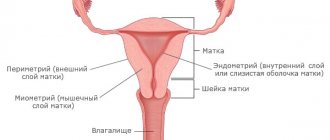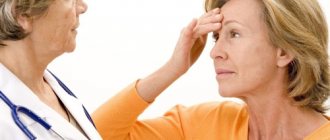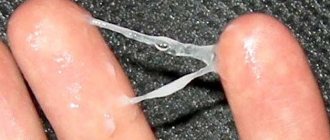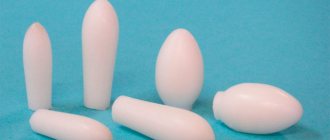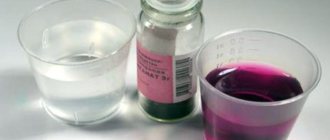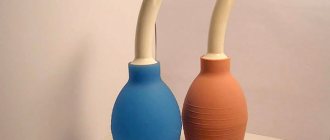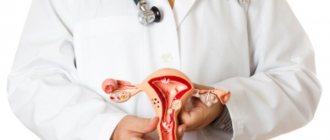Principles of pathology treatment
Pain and burning when urinating are the first signs of inflammation in the bladder. It affects women more often than men. This is due to the anatomical features of the excretory system. A woman's urethra is short, the bladder is located in close proximity to the genitals. This increases the risk of infection (Escherichia coli, male flora).
A set of measures to relieve pain from cystitis:
- bed rest ─ to reduce the severity of discomfort, the patient should be warm and physically at rest
- drug therapy ─ drugs that help relieve pain of various types (aching, sharp, cramping);
- physiotherapy ─ used for chronic inflammation, after the exacerbation subsides;
- herbal medicine ─ ingestion of decoctions of medicinal herbs, warm baths;
- drinking regimen and diet ─ drinking plenty of fluids and excluding hot, spicy foods in combination with pharmacological agents helps relieve pain from cystitis quickly.
Important! Physiotherapy is not prescribed during the height of the disease. Thermal procedures should not be used to relieve acute pain due to cystitis. This will provoke the reproduction and spread of infection, causing complications ─ transition to a chronic form, pyelonephritis (infectious inflammation of the renal pelvis).
Pain relief for women
This disease develops more often in women. In addition, very often cystitis becomes chronic. Therefore, treatment should be carried out comprehensively; you should not choose your own medications. The diagnosis and prescriptions must be prescribed by the attending gynecologist.
The most effective and at the same time safe for relieving pain due to inflammation of the bladder are selective non-steroidal anti-inflammatory drugs (Nimesil, Meloxicam, Celecoxib).
You can also use rectal suppositories, which have anti-inflammatory and antispasmodic effects.
These can be suppositories with Papaverine or Diclofenac. The effect of use occurs much faster than when using the drug orally.
Drug elimination of cystalgia
Since in 95% of cases inflammation is caused by pathogenic microorganisms, antibacterial agents help quickly relieve the symptoms of cystitis.
Effective medications for etiotropic therapy aimed at eliminating infection:
- Furadonin is a uroantiseptic, drug No. 1 for women for pain in the bladder. Has a bacteriostatic effect (stops the growth and reproduction of bacteria).
- Monural is a bactericidal antibiotic in the form of soluble granules for oral administration. Drink once a day 2 hours before or after meals. It is well tolerated by patients, quickly relieves pain at home, and rarely causes dyspeptic disorders (nausea, heartburn) or allergic skin reactions.
- Nolitsin is an effective drug for cystitis, but resistance (microbe resistance to the antibiotic) quickly develops. The drug causes negative effects on the central nervous system, so it is prescribed only in the absence of alternative treatment.
- Biseptol is an antimicrobial agent. Initially, a loading dose is prescribed, then the daily amount of the active substance is gradually reduced. The tablets are taken for 14 days. Contraindications: liver disease, blood disorders, severe forms of renal failure.
Acute cystitis: quickly treated with antibiotics
The use of potent medications should be discussed with your doctor. But if there is no way to wait, it is permissible to take a risk and take the most effective antibiotic - Monural. It is effective against almost all bacteria, which is why it is sometimes prescribed even before test results are available, simply to stop the infection.
Monural is a powder that is diluted with water according to the instructions and taken either 2 hours before meals or before bed. The last option is considered preferable. It is very important to urinate before using the solution, so that the medicine can remain in the bladder for the next few hours and have the desired effect on it.
Herbal preparations
If chemical-based products are contraindicated for a woman and she does not know how to relieve pain from cystitis, gynecologists recommend herbal remedies.
Cyston is a drug in the form of tablets, which contains 14 plant components. Has a diuretic, astringent effect, reduces irritation. Dissolves crystalline formations, microscopic stones. Is a natural antiseptic. To relieve chronic pain, take 2 tablets. 2-3 times a day for 3-4 months.
Canephron-N ─ oral drops based on rosemary, lovage, centaury. An alcohol solution is prescribed to women to relieve pain from cystitis at home. Drink 50 drops 3 times a day. If the drug is well tolerated, long-term therapeutic courses are prescribed.
Phytolysin is a paste in tubes for the preparation of an oral suspension. Produced from dry raw materials of 9 medicinal plants. Biologically active substances have antimicrobial, anti-inflammatory, analgesic effects. It is prescribed for the treatment of cystitis at home in women.
Spasmocystenal is a herbal anesthetic preparation based on belladonna root and moraine. The solution is available in a dropper bottle. Dosage regimen for how to relieve cystitis: to relieve attacks, 20 drops once, if indicated, can be repeated after half an hour. To prevent a relapse, drink 5 drops. 3 times a day, the duration of therapy is determined by the doctor.
How to reduce pain with cystitis
If you are taken by surprise by cystitis, and there is no way to see a doctor right now, you can use the following recommendations to relieve the pain:
- Stop doing physical work and stay in bed. This recommendation must be followed throughout the entire treatment period.
- Take off tight clothes and put on a loose shirt.
- Wash yourself morning and evening, maintain personal hygiene.
- Drink plenty of fluids. It is allowed to drink clean water without gas, urological preparations for cystitis, fruit juice with lingonberries or cranberries.
- To reduce pain, you need to remove irritating foods from your diet. These include salty, spicy, fatty, sweet.
- Take the painkiller tablet as directed. Before use, it is recommended to consult a doctor, as painkillers have contraindications and side effects.
Many women believe that during an attack of cystitis they should put a heating pad on their lower abdomen. This method is quite effective, but it is not always used. Warming is possible only for chronic non-infectious cystitis. If the inflammation is acute, then heating the lower abdomen is strictly prohibited.
Very often, acute cystitis is accompanied by a bacterial infection and suppuration. If you warm yourself in this state, bacteria will begin to multiply even faster, and the amount of pus will increase sharply. This can cause serious complications, even sepsis and death.
Folk remedies for bladder inflammation
Before resorting to traditional medicine to relieve the pain of cystitis at home, consider the potential benefits. It is better to consult a gynecologist or urologist. There are medicinal plants whose effectiveness has been proven by clinical practice.
Recipes to relieve the symptoms of cystitis at home:
- Squeeze the juice of fresh or frozen cranberries, dilute with purified drinking water in a 1:1 ratio. Take 100 ml 3-4 times a day. The beneficial components of the berries restore bladder function, help relieve pain, and eliminate pathological mucus and swelling.
- Finely chop the fresh parsley along with the root and put it in a thermos. Pour 200-250 ml of boiling water over the raw materials, close tightly and leave for 2-3 hours. Drink 50 ml in small sips half an hour before meals. The infusion relieves inflammation, cystitis quickly stops.
- Chop fresh dill. Take 3 tbsp. l. Pour 200 ml of hot water over the finished raw material and place it in a water bath. Simmer for 15 minutes. remove from heat, cool, strain. Bring the resulting liquid to a volume of 200 ml by adding boiled water. Take a glass of dill water 3 times a day for 20-30 minutes. before meals. This will help both reduce pain during inflammation and prevent the development of new attacks.
Treatment at home involves baths with herbs. The thermal procedure relieves spasms, reduces the urge, and pain when urinating.
Important! Taking a bath is strictly prohibited if blood is detected in urine tests!
Recommendations on how to relieve cystitis at home in warm water:
- Water temperature 37-38°C, procedure duration 15-20 minutes.
- The bathroom is heated.
- Do not immerse the entire chest and heart area in water.
- After the procedure, you cannot go outside, so it is best to do it at night.
- To effectively remove painful symptoms, after a bath you need to go to bed, cover yourself with a blanket, and put a warm heating pad on your lower abdomen.
You can quickly cure cystitis by taking baths with herbs.
Recipe No. 1.
Take dry sage grass, knotweed, birch leaves in equal proportions (total weight 200 g). Pour 5 liters of boiling water. Leave for 3 hours. Strain and pour into the prepared bath. Repeat the procedure every other day for a month.
Recipe No. 2.
Grind pine needles and cones, spruce (can be done in a meat grinder or blender). Take 200 g of raw material, pour boiling water (5 l), leave for 2-3 hours, strain, pour into the bathroom, and if necessary, bring the water to the desired temperature. Take baths for 10 days (every evening).
Emergency help
An acute attack of cystitis can occur suddenly, when it is impossible to see a doctor and there are no life-saving painkillers at hand. There are several ways to quickly relieve pain.
- If the patient does not have a fever, then two heating pads filled with warm water or sand can be used as an emergency aid. One heating pad is placed in the lumbar area, and the other is placed between the legs. The duration of the procedure should be 20 – 25 minutes.
- A hot bath for 15 to 20 minutes will help relieve an attack. After this, you need to immediately go to bed.
- Warming your feet will speed up blood circulation and relieve pain. It is best to do warm foot baths for 20 minutes.
- During an attack, you need to drink a lot of liquid - water, fruit juice, dried fruit compote. In this case, you must avoid any carbonated drinks, coffee and alcohol. Drinking plenty of fluids will help relieve pain, but will increase the number of trips to the toilet. In this case, urination will be accompanied by unpleasant sensations.
During an attack, you need to drink a lot of fluids.
Signs of the disease
Cystitis comes in two forms: acute and chronic. To identify this disease in yourself, you need to know its manifestations.
The occurrence of acute cystitis is associated with exposure to a provoking factor. It is characterized by a frequent urge to urinate, and if the inflammatory process is pronounced, the interval can be reduced to 5–10 minutes. During the process itself, pain (cramping) is bothersome, especially at the end of urine output. There remains a feeling of incomplete release of the urea.
Pain with cystitis occurs both during and after urination. Usually these are nagging, sharp, cutting pains in the lumbar and pubic areas. The urine becomes cloudy, and a few drops of blood may appear at the end of urination. There are symptoms of malaise, low-grade fever, and weakness.
Chronic cystitis can occur in the form of an independent disease or a complication of an existing one (chronic pyelonephritis, kidney stones, tumor diseases of the urinary system). The symptoms correspond to the acute form, but are less pronounced.
What can be used during pregnancy
If pathology develops in women during pregnancy, it is recommended to take herbal remedies that are safe and effective.
To avoid relapse of the disease, you should not only relieve pain, but also eliminate inflammation with the help of antibiotics. However, antibiotic therapy for acute cystitis during pregnancy should be prescribed in cases of extreme necessity. Therefore, most often women are recommended to take the herbal preparation Canephron and Monural powder.
In order to prevent the development of a chronic form of the disease, if the first signs of cystitis occur during pregnancy, you should immediately consult a doctor.
What to do after cystitis to avoid getting sick again
Most often, cystitis is a chronic disease. The following tips will help you reduce the consequences and prevent the recurrence of the disease:
- Don't get too cold. You should especially insulate yourself well in winter, because it is better to walk around healthy in warm pants than with acute pain, but in a skirt.
- Use condoms. They are not only a means of contraception, but also protect you from STDs and many other infectious diseases.
- Maintain personal hygiene. Especially during menstruation.
- Limit your consumption of spicy, fried, salty foods. Don't abuse alcohol.
- Drink the required amount of fluid per day.
- Check with your doctor periodically.
Consequences of inaction
Severe pain in the lower abdomen due to cystitis is only the least that can result from negligence during treatment. Do you already feel your back and kidneys hurting? This is already a signal that the disease is going higher, because if the kidneys hurt with cystitis, then this may be a sign of pyelonephritis, i.e. kidney inflammation.
Also, a disease such as paracystitis may subsequently appear. The worst thing can be infertility. You need it? Therefore, you should not be afraid of doctors. At the first signs of illness, an emergency call and an urgent treatment process are needed. Don't neglect your health, and then you can live peacefully without pain.
